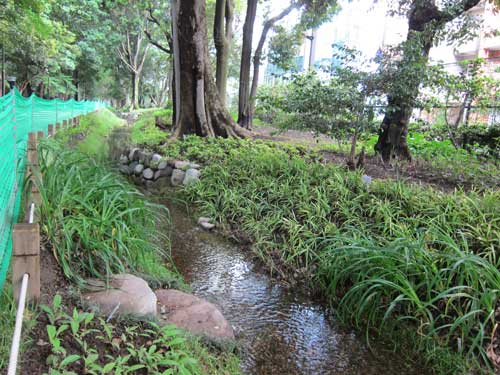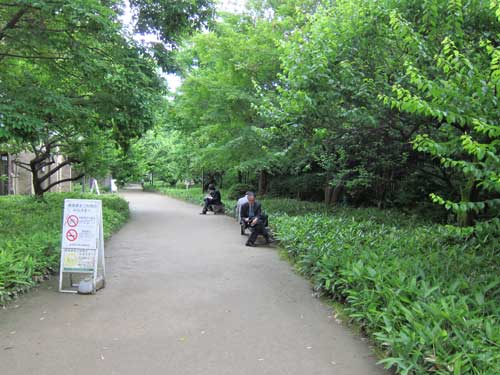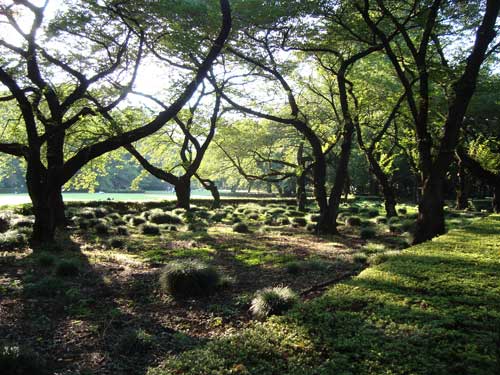
Just in time for hot and humid summer, Shinjuku Gyoen has opened a newly planted mini-creek along the edge of this fantastic park. Shinjuku Gyoen is one of my favorite gardens in central Tokyo, but its small entrance fee makes it seem like more of an outing than just a casual visit. That’s what makes the small edge park running along the northern side (by Shinjuku 1-chome) so wonderful.

The path extends about a kilometer between the Shinjuku gate and the Okido gate. The mini-creek is clearly artificial, and surrounded by new plantings. Signage explains some connection to Edo history. If you are in the neighborhood, I highly recommend walking through this shady path and enjoying the running water. Be warned, however, that the path, like the park, closes at 4:30 pm.
The other half of the walkway has not been renovated. However, since it’s closer to the business district, you often see business people enjoying this quiet space or just taking a break from the office.

